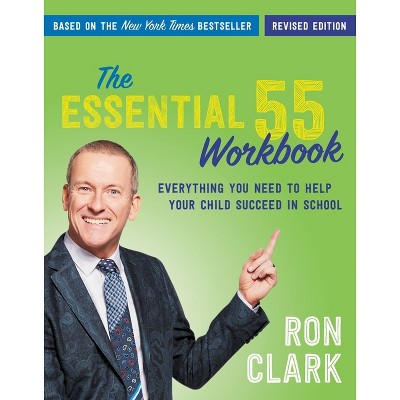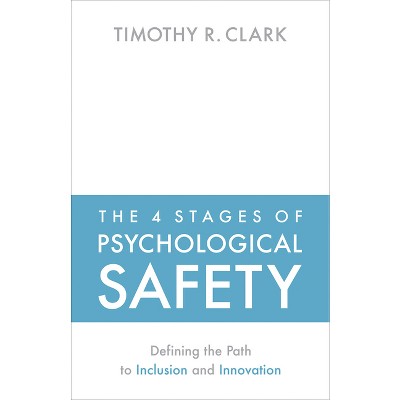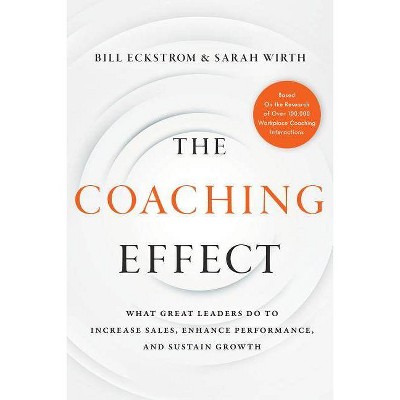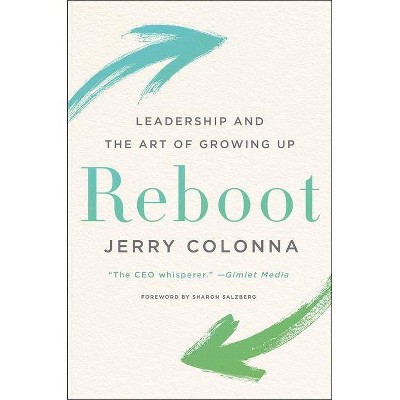The Catalyst Effect - by Jerry Toomer & Craig Caldwell & Steve Weitzenkorn & Chelsea Clark (Hardcover)

About this item
Highlights
- Have you ever known colleagues who the minute they stepped into the conference room, on stage, or onto the playing field, elevated the performance of everyone around them?
- About the Author: Jerry Toomer serves as an Executive Partner and Adjunct Professor in the Lacy School of Business at Butler University.
- 232 Pages
- Business + Money Management, Leadership
Description
About the Book
"This wonderful book cuts straight to the chase on what it takes to be a true leader through collective trust and empowerment."--Stephen M.R. Covey, # 1 "Wall Street Journal"-bestselling author of "The Speed of Trust"st"Book Synopsis
Have you ever known colleagues who the minute they stepped into the conference room, on stage, or onto the playing field, elevated the performance of everyone around them? Someone whose impact within the team could be seen in nearly everything that was said and done.
These individuals are catalysts - they spark excellence in the behavior and the performance of the entire team.
The Catalyst Effect identifies the behaviors and skills needed to lead from wherever you are, regardless of your role or title. It describes powerful leadership and teamwork principles--12 clearly defined competencies, based on field research with professionals in business, sports, the arts, and non-profit organizations--that will elevate the performance of individuals, teams, and your entire organization.
This essential guide will show you how to learn and practice these catalytic competencies and help your group and organization achieve greater success, improve team dynamics, and help teammates grow in stature while magnifying their value.
Review Quotes
Business professors and specialists Toomer et al. explain the mindset and competencies leaders need to impact and elevate team performance. They describe a catalyst effect that occurs by fusing leadership and teamwork into a force that raises the performance of everyone and elevates the overall team success, producing higher-level results. Drawing on interviews with professionals and leaders in business, sports, and the arts, they detail 12 key competencies to improve impact and drive progress toward team goals: building credibility by acting with integrity and inspiring trust, communicating clearly, and energizing others with optimism; creating cohesion by connecting emotionally, developing camaraderie, and putting the team's goals and the organization's mission before personal interests; generating momentum by energizing others to execute with the mission in mind, upgrading and rejuvenating skills and knowledge, and leading and following; and amplifying impact by pursuing excellence, mentoring and coaching others to excel, and proposing imaginative solutions.--Annotation (c)2018 "(protoview.com)"
About the Author
Jerry Toomer serves as an Executive Partner and Adjunct Professor in the Lacy School of Business at Butler University. With over three decades of applied experience as a Human Resource executive, he brings unique insights into leadership and organization effectiveness.
Craig Caldwell is the Associate Dean of Graduate & Professional Programs in the Lacy School of Business at Butler University. Craig has been published in Business and Society, Journal of Leadership & Organizational Studies, The Monitor, Business and Society Review, Management Accounting Quarterly, and Journal of Corporate Citizenship.
Steve Weitzenkorn is an organizational adviser and strategy consultant, working closely with multinational corporations, local companies, educational institutions, and not-for-profits to elevate their success. He has developed innovative and award-winning training programs for American and international companies.
Chelsea Clark is the Founder and President of Chelsea Clark Consulting, LLC, a relationship research firm located in Carmel, IN. Her business assists corporate, non-profit, and academic leaders in achieving their research-related objectives and solving complex social scientific questions.











